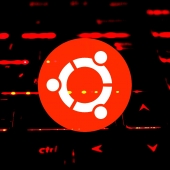-
Cisco warns of NX-OS zero-day exploited to deploy custom malware
Cisco has patched an NX-OS zero-day exploited in April attacks to install previously unknown malware as root on vulnerable switches.
- July 01, 2024
- 01:46 PM
 0
0
-
New Linux glibc flaw lets attackers get root on major distros
Unprivileged attackers can get root access on multiple major Linux distributions in default configurations by exploiting a newly disclosed local privilege escalation (LPE) vulnerability in the GNU C Library (glibc).
- January 30, 2024
- 06:06 PM
 4
4
-
Cisco says critical Unity Connection bug lets attackers get root
Cisco has patched a critical Unity Connection security flaw that can let unauthenticated attackers remotely gain root privileges on unpatched devices.
- January 10, 2024
- 03:42 PM
 0
0
-
CISA orders federal agencies to patch Looney Tunables Linux bug
Today, CISA ordered U.S. federal agencies to secure their systems against an actively exploited vulnerability that lets attackers gain root privileges on many major Linux distributions.
- November 21, 2023
- 12:56 PM
 3
3
-
Exploits released for Linux flaw giving root on major distros
Proof-of-concept exploits have already surfaced online for a high-severity flaw in GNU C Library's dynamic loader, allowing local attackers to gain root privileges on major Linux distributions.
- October 05, 2023
- 03:44 PM
 0
0
-
Cisco fixes hard-coded root credentials in Emergency Responder
Cisco released security updates to fix a Cisco Emergency Responder (CER) vulnerability that let attackers log into unpatched systems using hard-coded credentials.
- October 04, 2023
- 12:43 PM
 1
1
-
New 'Looney Tunables' Linux bug gives root on major distros
A new Linux vulnerability, known as 'Looney Tunables' and tracked as CVE-2023-4911, enables local attackers to gain root privileges by exploiting a buffer overflow weakness in the GNU C Library's ld.so dynamic loader.
- October 03, 2023
- 04:36 PM
 0
0
-
New Linux kernel NetFilter flaw gives attackers root privileges
A new Linux NetFilter kernel flaw has been discovered, allowing unprivileged local users to escalate their privileges to root level, allowing complete control over a system.
- May 09, 2023
- 12:49 PM
 0
0
-
Cisco fixes critical remote code execution bug in VPN routers
Cisco has fixed critical security vulnerabilities affecting Small Business VPN routers and enabling unauthenticated, remote attackers to execute arbitrary code or commands and trigger denial of service (DoS) conditions on vulnerable devices.
- August 03, 2022
- 01:26 PM
 0
0
-
Cisco fixes bug that lets attackers execute commands as root
Cisco has addressed severe vulnerabilities in the Cisco Nexus Dashboard data center management solution that can let remote attackers execute commands and perform actions with root or Administrator privileges.
- July 20, 2022
- 01:49 PM
 0
0
-
Cisco fixes NFVIS bugs that help gain root and hijack hosts
Cisco has addressed several security flaws found in the Enterprise NFV Infrastructure Software (NFVIS), a solution that helps virtualize network services for easier management of virtual network functions (VNFs).
- May 04, 2022
- 03:58 PM
 0
0
-
New Nimbuspwn Linux vulnerability gives hackers root privileges
A new set of vulnerabilities collectively tracked as Nimbuspwn could let local attackers escalate privileges on Linux systems to deploy malware ranging from backdoors to ransomware.
- April 27, 2022
- 01:59 AM
 0
0
-
Samba bug can let remote attackers execute code as root
Samba has addressed a critical severity vulnerability that can let attackers gain remote code execution with root privileges on servers running vulnerable software.
- January 31, 2022
- 04:15 PM
 1
1
-
Linux system service bug gives root on all major distros, exploit released
A vulnerability in Polkit's pkexec component identified as CVE-2021-4034 (PwnKit) is present in the default configuration of all major Linux distributions and can be exploited to gain full root privileges on the system, researchers warn today.
- January 25, 2022
- 03:44 PM
 2
2
-
Attackers can get root by crashing Ubuntu’s AccountsService
A local privilege escalation security vulnerability could allow attackers to gain root access on Ubuntu systems by exploiting a double-free memory corruption bug in GNOME's AccountsService component.
- December 13, 2021
- 12:05 PM
 0
0
-
Software maker removes "backdoor" giving root access to radio devices
The author of a popular software-defined radio (SDR) project has removed a "backdoor" from radio devices that granted root-level access. The backdoor had been, according to the author, present in all versions of KiwiSDR devices for the purposes of remote administration and debugging.
- July 15, 2021
- 07:21 AM
 0
0
-
Linux system service bug lets you get root on most modern distros
Unprivileged attackers can get a root shell by exploiting an authentication bypass vulnerability in the polkit auth system service installed by default on many modern Linux distributions.
- June 11, 2021
- 07:58 AM
 5
5
-
15-year-old Linux kernel bugs let attackers gain root privileges
Three security vulnerabilities found in the iSCSI subsystem of the Linux kernel could allow local attackers with basic user privileges to gain root privileges on unpatched Linux systems.
- March 13, 2021
- 10:15 AM
 0
0
-
New Linux SUDO flaw lets local users gain root privileges
A now-fixed Sudo vulnerability allowed any local user to gain root privileges on Unix-like operating systems without requiring authentication.
- January 26, 2021
- 02:39 PM
 4
4
-
Ubuntu's Gnome desktop could be tricked into giving root access
A vulnerability in GNOME Display Manager (gdm) could allow a standard user to create accounts with increased privileges, giving a local attacker a path to run code with administrator permissions (root).
- November 10, 2020
- 11:41 AM
 3
3
- 1
- 2






















